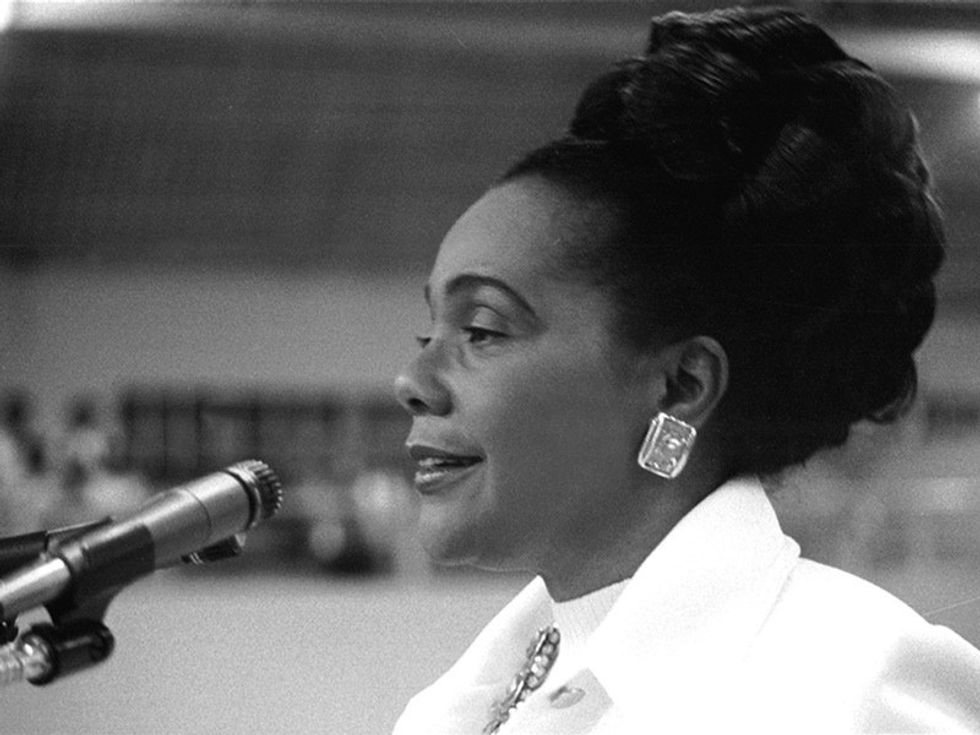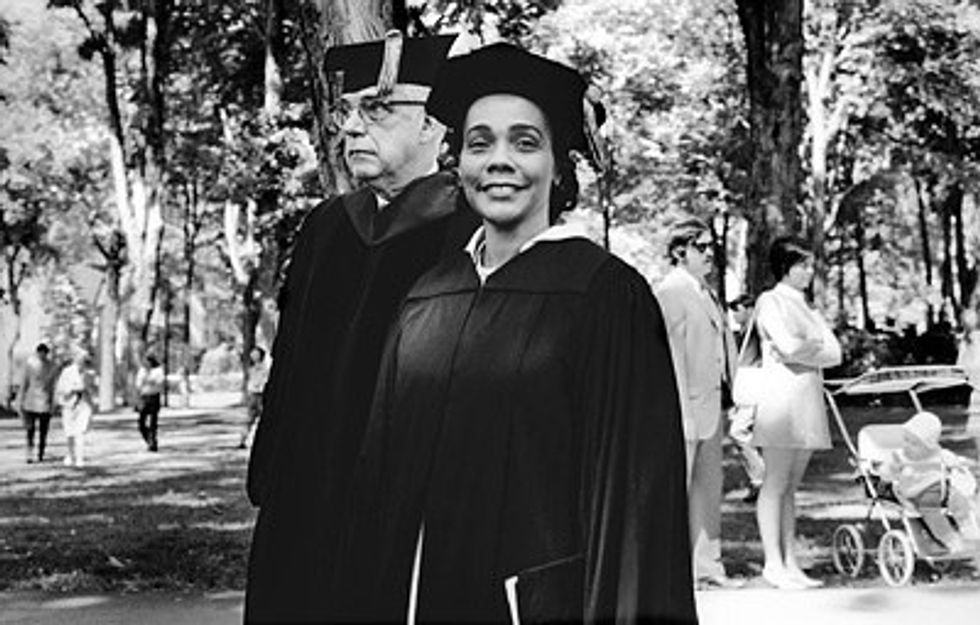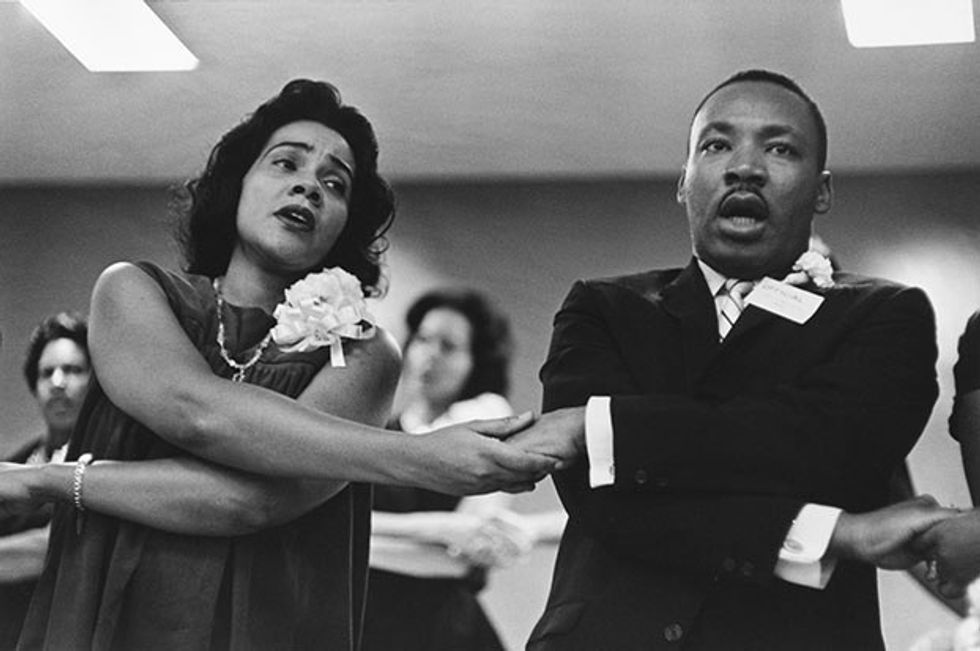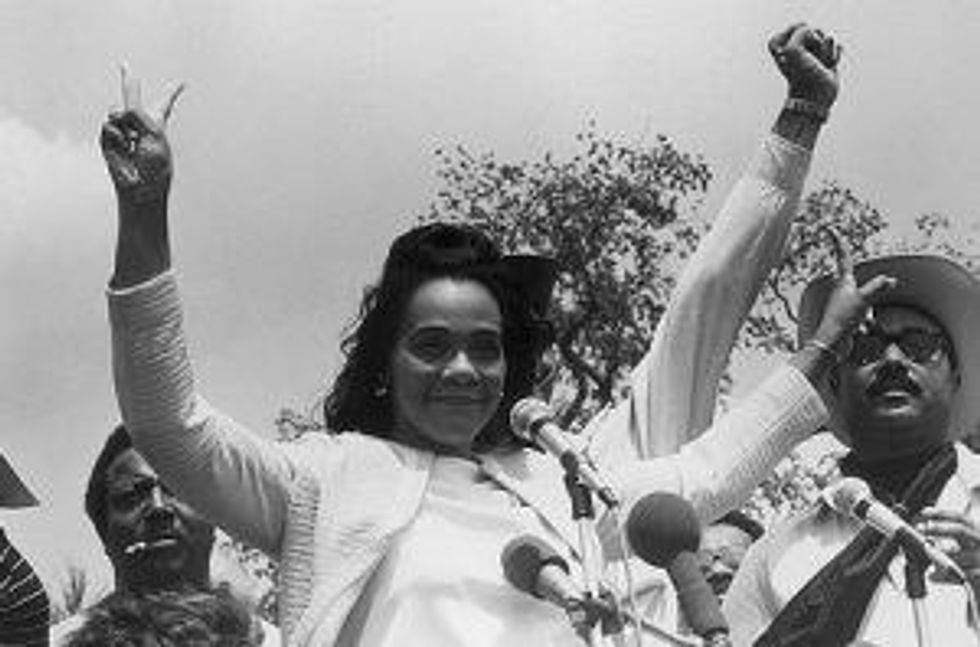As we celebrate Black History month, we often forget our SHEros. No disrespect to Dr. Martin Luther King Jr., Malcolm X, and Marcus Garvey, for their efforts in advancing the positions of African Americans will always be legendary. As we review the Civil Rights movement, we must also take into account the blatant patriarchal time period that it took place in. Often, women who emerged as public leaders were sidelined and silenced as male fighters were put into the forefront as the voices of the people. A prime example of this was The March on Washington, which has been critiqued for the blatant sexism shown to women leaders. Gloria Richardson in an interview with The Root, recounted her experience at that event. If we truly reflect, we must think about how many times we've heard of women leading marches, rallies, and boycotts. For as much as Fannie Lou Hammer, Diane Nash, Ella Baker, and Dorothy Height did, they will never get the one paragraph Dr. King and Malcolm X get in school textbooks. Some may argue that women are recognized. However, Rosa Parks is not enough. As even her story has been watered down to just a tired woman who wouldn't give up her seat on the bus. She had been an activist long before that.
As Black History Month comes to a close, I want to shed light on a woman who has never gotten enough credit: Coretta Scott King. Often, Coretta has been portrayed as Dr. King’s beautiful and polished wife. The woman who held his hand as he marched and took care of the children while he was away. Although there is nothing wrong with women who support their husbands, some wrongly believe that her only accomplishment was getting a holiday commissioned in her husband's memory; shout out to the third Monday in January. However, it is disrespectful to diminish her contributions to the movement.
Coretta was involved in the Civil Rights Movement when she met Martin. Beginning in the early 1950s due to the treatment she experienced during her upbringing, she became involved as a student activist at Antioch College. Coretta became a prominent part in her college's chapter of the National Association for the Advancement of Colored People, ( NAACP). As she became involved with Dr. King, her accomplishments such as working with the women's movement, her own work as a Black activist, and her opposition of war became overshadowed. This is somewhat understandable because Dr. King was an influential man. However, she shouldn't bee forgotten. What people often forget is that Martin and Coretta fought to become central in the Civil Rights Movement as a unit. She was never behind him, but always beside him.
After Dr. King’s death, Coretta still remained a prominent figure in the movement towards equality for all. She continued to promote World Peace by publicly opposing South African apartheid. She fought for women's rights, calling women to unite and fight against racism, poverty, and war. She traveled globally to places such as Ghana and India to gain knowledge of civil rights and to advocate for people of color there as well. Despite resistance from the church, she also strongly advocated for LGBT equality, even fighting to have LBGT rights included in the Civil Rights Act. So as Coretta Scott’s name is mentioned alongside Dr. King's during Black History Month, let us separate her accomplishments from his. Let us expound on how she was more than what others let on. That she was a change agent, a fighter. Let’s not rob her of her historical truth. As we celebrate her life here on Earth, let us say more than she was the wife of the great Dr. King. She was a gangster.

























